“Democracy is the worst form of Government except for all those other forms that have been tried from time to time.” – Winston Churchill
Last quarter we wrote about the ongoing trade situation between China and the U.S. and the potential risk it poses to the global economy through creating a “wait and see” mentality for businesses. We are still waiting to see how this escalates or resolves, meanwhile actual harm is starting to show in the agriculture and manufacturing industries. This quarter, when we started framing our outline, we had planned on focusing on the economy – short answer is the economy is still growing, but anemically. Instead, given the ties between markets and politics, we find ourselves writing about the importance of checks and balances in our political system, in our economic system, and in your portfolios.
In 2016, the Western world woke up through Brexit and the U.S. Presidential election to the fact that foreign governments could interfere in our political system, stoke division, and create fragility in our democracies. We saw a rise in populism on the right and left across the U.S. and Europe. However, the resiliency that has been built into our democracies is starting to show, and the interference of outside actors and populism is starting to be checked.
By way of the vote, a series of strong right-wing populist candidates were rejected across Europe. In the UK, their parliament successfully prevented Prime Minister Johnson’s suspension of parliament and passed the Benn Act to avoid defaulting to a “no deal Brexit” without a parliamentary vote. In the U.S., we have now seen the launch of impeachment proceedings on President Trump from the Democratic controlled House of Representatives. The purpose of pointing out these various news items is not to pick political sides, but to show the functioning and importance of resilient systems by way of checks and balances. The European Union may have cracks, but it is not crumbling under the anti-EU populism many predicted. Here in the U.S., Congress is exercising its power to investigate either real or perceived wrongdoings within the Executive Branch. The robust political mechanisms within our Western democracies are still greased and functional.
Within our economic system, the checks and balances we see are trifold: monetary, fiscal, and regulatory. After the global financial crisis in 2008 and 2009, central banks eased monetary policy by dropping interest rates to zero, treasuries created programs to seclude toxic debt from the market and unfreeze lending, and lawmakers moved quickly to regulate the banks. Today, with the threat of a trade war causing a recession, global central banks are cutting rates in tandem to curb the economic slowing, and their treasuries are again discussing injecting cash into the economy to support inflation and asset prices. Our global economic system has capacity for stimulus to keep our economy crawling instead of stalling under its current burden of stresses.
Finally, we have built checks and balances into your portfolios through diversification and thoughtful portfolio construction. Your equity portfolio allows you to participate in economic growth via ownership in company stocks while your bonds moderate losses when stocks inevitably slide. But it goes beyond that – we recognize that over the long term, growth happens to humanity and not only to individual countries. Globally, we just crossed a tipping point where more than 50% of the world’s population is now in the middle class, with all of that growth happening outside the United States (Brookings Institute). We recognize this and position your portfolios globally to participate in the opportunity of growing middle-class demand and the collective success of humanity.
This is not all to say that current events shouldn’t be weighing on your mind, but that you can be assured our government and your portfolios are designed with checks and balances in place to weather the extremes. We will continue to monitor your portfolios for opportunities to rebalance overvalued positions into undervalued assets and we will continue to look for attractive buying opportunities caused by the inevitable market pullbacks.
—

